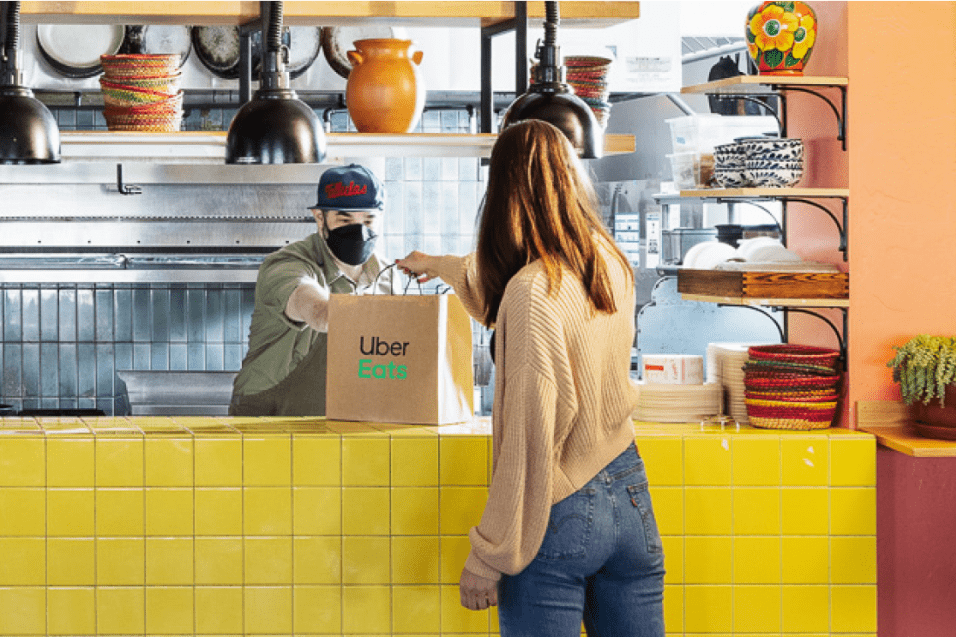The companies Uber Eats, Didi Foods and Rappi lead the delivery market in Mexico, according to a report from the United States Department of Agriculture.
The first food delivery apps in Mexico arrived in 2016, starting with Uber Eats, which covers 100 restaurants in Mexico City, followed by Rappi (from Colombia).
For 2017, the market share was divided between Uber Eats, Rappi, Postmates and Sin Apron (Spain).
But Postmates focused its efforts on the United States and discontinued its services in Mexico in 2019.
That same year, Didi Food (China) entered the Mexican market.
Uber Eats
Sin Apron left in October 2020 due to the impact of the Covid-19 pandemic and strong competition from Uber Eats, Didi Food and Rappi.
Currently, according to the USDA, Uber Eats leads the market with a total of 47,267 users and 35,000 affiliated restaurants.
For its part, Didi Foods has a total of 24,188 users and covers 34 cities in Mexico.
In the third position, Rappi has 23,754 users and also offers grocery delivery, pharmacy delivery, cash delivery, and Rappi Favores, where the user can request special business deliveries off the platform.
In general, the development of electronic commerce in Mexico goes hand in hand with the increase in internet users and the improvement in internet connectivity.
According to the National Survey on the Availability and Use of Information Technologies in Homes (ENDUTIH) 2020, Mexico has 84.1 million internet users and 91.8% of the population has a smartphone.
Likewise, according to a study by the Mexican Online Sales Association (AMVO), the Covid-19 pandemic accelerated the growth of e-commerce in Mexico, as more consumers turned to online platforms instead of in-store purchases.
Mexican consumers turned to online shopping during the pandemic to avoid crowds and infections in physical stores.
Consumers also began to appreciate the convenience of finding out-of-stock products, comparing prices, and home delivery.
In 2020, online sales represented 9% of retail sales in Mexico.
![]()

